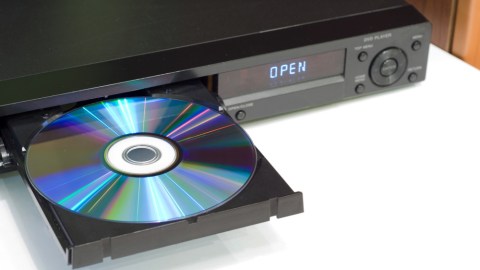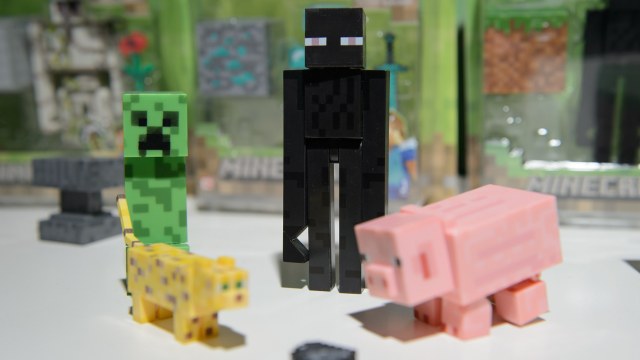DVDs Are The Vinyl Records For Future Hipsters

When I was a kid, I loved VHS tapes. They were the ultimate form of entertainment, but they weren’t just for viewing. In my early school days, I could spend hours stacking them, sorting them alphabetically and by color, and even using them to build forts for my action figures and stuffed animals.
They were fun to watch, too, but their technological capabilities didn’t exactly measure up to the modern viewing experience. Rewinding or fast-forwarding them to just the right place could drive me (okay, mostly my parents) crazy. After several uses, the images would go haywire and the sound would be garbled. And if, heaven forbid, the tape ever came unspooled and started spilling out of that black plastic rectangle, well, good luck ever watching The Lion King again.
When I became acquainted with the DVD around the turn of the century, it transformed me into an even more prolific consumer of video content. I could skip past the traumatizing scene of Mufasa’s death with just a few clicks of the remote. I didn’t have to worry about wearing out the discs from overuse (except, of course, in the case of dreaded scratches and smudges). The easily browsable interface and increased storage capacity of DVDs allowed for bonus content to be included with my favorite films, and led to the popularization of TV box sets. But now, just 20 years after its initial development, the DVD is all but extinct.
The always perceptive folks at The A.V. Club have made a compelling case that the Internet both gave birth to and killed the DVD. “It’s worth remembering that the scientific innovation and subsequent cultural landscape that is burying the [DVD] is the same one that spawned its defining quality — the something extra. If anything, the DVD will stand as perhaps the first example of a mass format created, nurtured, and ultimately rendered obsolete by the digital transformation of culture,” writes Alex McCown. He’s correct; the DVD caught fire because it could deliver more material (with better presentation, to boot) than the VHS. But in turn, the ever-expanding Internet now has much more to offer than the contents of a single disc ever could.
Today, I have many of my favorite movies and shows stored on the cloud, but I also have a big box of my old DVDs tucked into a corner by my TV. As much as I enjoy not having to shuffle discs in and out of a tray, there is comfort in knowing that my hard copies will endure. All-you-can-eat streaming services are nice, but my favorite selections could be pulled at any time. What happens to the streaming content I’ve purchased if the host companies go under? Will the popular file formats of today even be playable in a generation or two?
Though I’m not the type to get nostalgic about retro technology, I take comfort in knowing that my box of DVDs will still be there long after I’ve replaced my computer, phone, and streaming accounts many times over. Plus, much like vinyl records, they offer better video quality and higher sound fidelity than online streams can support. So, while DVDs are falling out of the mainstream, there’s plenty of reason to hope they’ll stick around.
VisitThe A.V. Clubfor more, and check out Ken Auletta’s thoughts on the rise of Netflix over Blockbuster Video.




